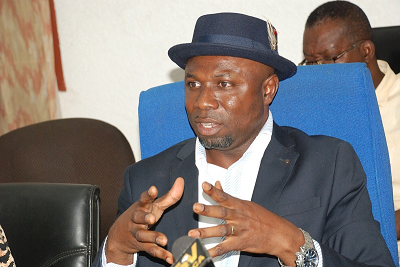The immediate-past President of the National Association of Graduate Teachers (NAGRAT), Mr Christian Addai-Poku, has been elected President of the African Region of Education International (EI), a global union of teachers in 170 countries.
His election took place at the Ninth Conference of EI’s, Africa Region held at Grand Bassam in Cote d’Ivoire last week. Mr Addai-Poku was elected unopposed after the other contestant, who was the then incumbent, was disqualified.
Education sector
It was on the theme: “Equitable, Inclusive and Quality Education in Africa: The Role of Education Sector Unions in the Realisation of Agenda 2030”.
EI consists of about 400 organisations and 32 million members in 172 countries and territories. It members are found in Africa, Asia-Pacific, Europe, North America, the Caribbean and Arab countries.
In his acceptance speech, Mr Addai-Poku, who is the current Headmaster of the Asanteman Senior High School in the Ashanti Region, commended members of the National Association of Graduate Teachers (NAGRAT), the Ghana National Association of Teachers (GNAT) and the Teachers and Educational Workers Union for their support in his election.
Gratitude
“My immeasurable gratitude to the NAGRAT, GNAT and TEWU delegations for their collective strategies and fight that brought this great victory. Solidarity at its best,” he said.
Mr Addai-Poku was the president of NAGRAT from 2010-2018.
“Comrades, we are confronted with the canker of fragmentation of unions across the continent. Our unions are weakened by our self-afflicted divisions, which of course, the employers enjoy as it makes them appear stronger.
“The Unity Project will be prioritised in the years ahead. We will do our best to ensure that the unity project in Zambia which is highly supported by South Africa becomes a shining example for all of us in Africa,” Mr Addai-Poku said.
Measures
He said he and his team would promote preventive measures to forestall future fragmentations, adding that they would do this by helping to strengthen internal democracy of the unions, undertake youth and gender empowerment programmes and pay attention to the interest of diverse minorities within our unions.
“Our colleagues in Burundi, Rwanda, Djibouti and many other countries live in constant danger for opting to protect rights of our profession.
A lot of national teacher unions in Africa do not have collective bargaining rights. Non-professional Teachers are being recruited to fill vacant teaching positions. Our Education Support Personnel have been marginalised in many of our countries and all these call for a critical response,” he said.
EI, which represents the interests of teachers and other education employees on the international level, promotes the principle that quality education, funded publicly, should be available to every student in every country.
It also, among other things, assists the development of independent democratic organisations to represent teachers and other education employees and builds solidarity and cooperation between them.

